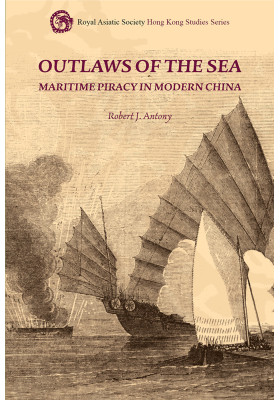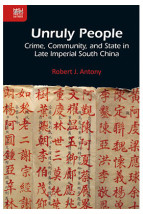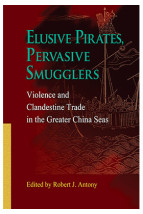Outlaws of the Sea
Maritime Piracy in Modern China
(海上匪類:中國近代海盜)
ISBN : 978-988-8876-77-8
Royal Asiatic Society Hong Kong Studies Series (皇家亞洲學會香港研究叢書)
November 2024
268 pages, 6″ x 9″, 26 b&w illus; 4 maps and 13 tables
- HK$350.00
Ebooks
Also Available on
In Outlaws of the Sea, Robert J. Antony provides a comprehensive account of the history of maritime piracy in coastal south China from the 1630s to the 1940s. He neither romanticizes nor maligns pirates, but rather analyzes them in the context of their times and the broader world in which they lived. The author demonstrates that Chinese piracy was a pervasive force shaping maritime society as it ebbed and flowed between sporadic, small-scale ventures and professional, large-scale enterprises in the modern era. This book offers important new insights into the underside of modern China’s history and the interactions between pirates, foreign traders, local communities, and the state.
“How can the voices of pirates be retrieved? Robert Antony convincingly illuminates the shadowy landscape of the maritime world. A stalwart in pirate studies, his exemplary scholarship offers a rich and compelling narrative. This book is essential for anyone captivated by the underside of Chinese history and the lore of the sea.”
—Ronald C. Po, London School of Economics and Political Science
“Antony combines primary and secondary sources with notes from his extensive fieldwork trips and interviews to create a compelling narrative. Besides providing a necessary update to the scholarship on the South China pirates, the biggest contribution of the current volume is its scholarly coverage of piracy beyond the early nineteenth century. Antony delves into previously untreated topics, including the Portuguese occupation of Coloane, colorful women predators such as Lai Choi San, and racially inspired associations of Chinese pirates with the Yellow Peril during the age of high imperialism. Written in an easily accessible manner, it can appeal to students of criminology, global issues, and Asian history, as well as members of the general public.”
—Xing Hang, The Hong Kong Polytechnic University








